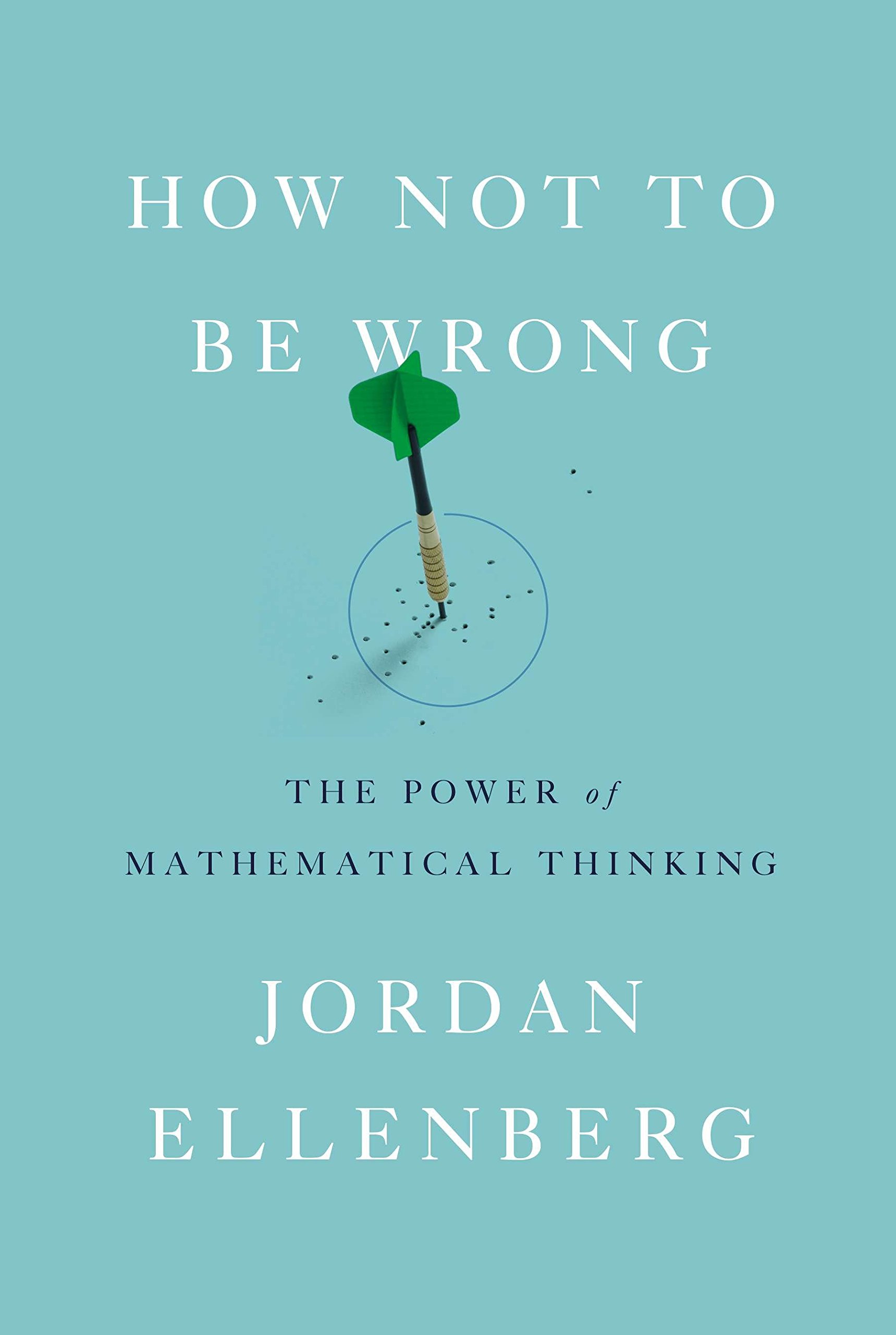How Not To Be Wrong: The Power of Mathematical Thinking

I was recently recommended the book How Not To Be Wrong: The Power of Mathematical Thinking by Jordan Ellenberg, so I picked it up and read it fairly quickly!
It was definitely an interesting read! Some of the sections were a bit too long for my taste - for instance, I found myself zoning out a bit when Ellenberg spent several pages talking about p-hacking, but overall, I really enjoyed the book - and especially Ellenberg's idea of mathematics as an extension to common sense.
As someone who has taught high-schoolers mathematics and seeing as my bachelor was fairly theoretical in Mathematics, the following section resonated with me:
One of the most painful parts of teaching mathematics is seeing students damaged by the cult of the genius. The genius cult tells students it's not worth doing mathematics unless you're the best at mathematics, because those special few are the only ones whose contributions matter. We don't treat any other subject that way! I've never heard a student say, "I like Hamlet, but I don't really belong in AP English - that kid who sits in the front row knows all the plays, and he started reading Shakespeare when he was nine!" Athletes don't quit their sport just because one of their teammates outshines them. And yet I see promising young mathematicians quit every year, even though they love mathematics, because someone in their range of vision was "ahead" of them. We lose a lot of math majors this way. Thus, we lose a lot of future mathematicians; but that's not the whole of the problem. I think we need more math majors who don't become mathematicians. More math major doctors, more math major high school teachers, more math major CEOs, more math major senators. But we don't get there until we dump the stereotype that math is only worthwhile for kid geniuses.
Mathematics are not necessarily for those, who want to become mathematicians - it's for everyone! And I think that's a great message to spread.